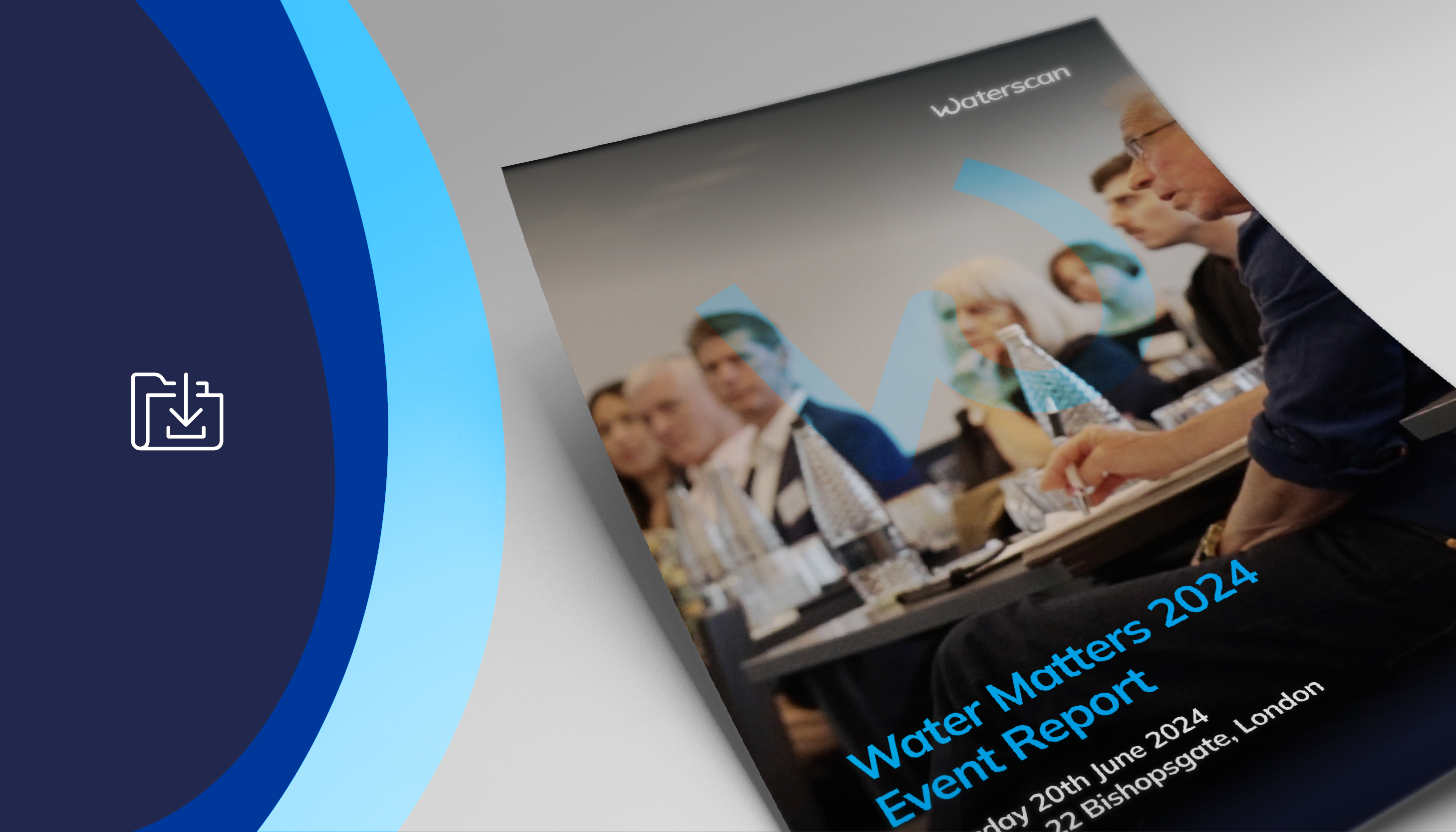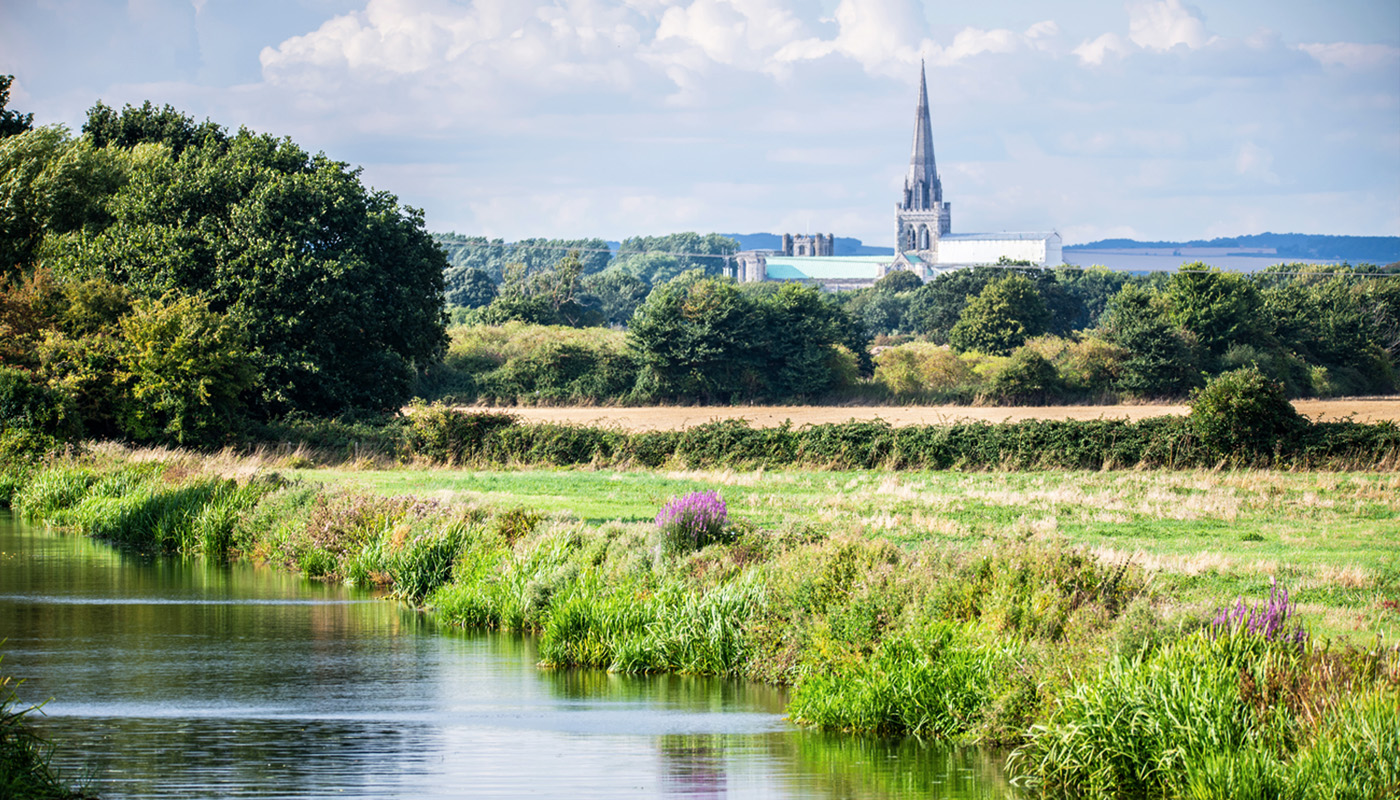Chris, there was so much energy in the room after you spoke at last year’s Water Matters conference – we know many attendees were inspired by your experiences and insight. What did you take away from the event?
There was a welcome seriousness about it. I felt that there was a significant weight of people in the room who were open and engaging in the big issue of water scarcity and what’s coming our way. There was a realisation of what the challenges are and that we absolutely need to do something about them. One thing that came across clearly was that water is a business-critical issue. We need big systemic change now and there’s a lot of work to do.

Do you think that companies and organisations adequately value the availability of fresh water?
No. This is partly because it’s very wet here, and partly because we’ve had this resource for generations. People think that water’s always been there, but if you went back a century or two, this wasn’t the case. There would have been village pumps, not indoor taps, and waste would have been flushed towards fields and rivers. It wasn’t so long ago that many people had outside toilets. The majority of us take all this for granted now.
We’re quite comfortable as a nation too, at the moment. We’re not seeing the severe impacts of the climate crisis but this is coming, floods being one of the most direct examples of that, affecting our railways and infrastructure. These are the moments when it hits us.
Water smart metering is going to take some time to roll out, so what else could help change attitudes to water in the meantime. Which stakeholders will drive it?
Investors are important. It would be interesting to see which investors have any of this on their radar. One of the last things that Mark Carney did as Governor of the Bank of England was to pressure test our big banks in terms of their carbon exposure. We need someone to do that for water to show that future water checks could be just round the corner, quicker than smart metering, in testing resilience.
I also think we’ll see media picking this up more, especially if we have another hot summer. A good example is a radio discussion about reservoirs I heard recently. Reservoirs are built right across Europe but we haven’t built one here for decades, although I believe they’re looking into this in the South and in East Anglia. This will pique interest but it’s not going to be the thing that gets us out of the hole.
This will only happen when the risks to national infrastructure and impacts for things like food security, transport and so on become known. We need a fresh look at water infrastructure and we need to think about how we tackle resilience.
Processing water is hugely energy intensive too, so are companies missing a trick by not considering their water impacts in their net zero work?
Yes. And there’s probably a lot of low hanging fruit there. Where are the quick wins? And what needs to be planned for?
At the moment, we’re not seeing the financial driver of being water efficient. Reporting on water must be part of the Financial Director’s toolkit. It goes back to triple bottom line thinking: here’s the financial, social and environmental, including water, implications of this or that investment.
There needs to be a water mission in every company, and there’s a bit of campaigning to be done here, too.
Businesses hold a lot of power so what’s holding them back from taking action or even taking risks to address water scarcity?
Educated leadership. And that goes right across environmental and social matters. We simply need better leadership. Leadership that has more empathy and understanding of the risks that are coming our way. We need to turn down the dial on companies delivering what makes consumers happy and turn the dial up on a wider set of values. That’s where being a good company comes from.
Find out more about Water Matters 2024 here.




